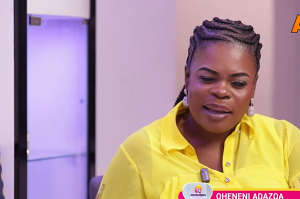Accra, Nov. 11, GNA- Mr. John Mahama, MP for Bole, Tuesday said the World Bank (WB) driven urbanisation policy, which requires towns to attain a 15,000 population threshold to qualify as urban area for development programmes, is a disincentive to family planning.
He said "a policy which requires towns to have 15,000 inhabitants before they can benefit from development programmes is indeed discourages family planning and encourages increase in birth rate and its resultant economic burden."
Mr. John Mahama was commenting on an answer given by Mr. Kwadjo Adjei Darko, Minister of Local Government and Rural Development to a question as to when Bole, Salaga and Damongo will be considered for World Bank's Urban Development Programme (WBUDP).
The Minister in response to a question by Mr. John Mahama on behalf of Alhaji Seidu Amadu, MP for Yapei-Kusawgu, had stated that under the WBUDP, towns were supposed to attain a population threshold of 15,000 inhabitants to benefit from the programme.
He added that Salaga and other towns have qualified under that criteria, but Bole and Damongo were yet to qualify, as their populations were not yet up to 15,000.
Mr. Mahama noted that Bole and Damongo were strategically placed towns, which when urbanised, would benefit the entire country.
He explained that Bole was a border town and an entry point for neighbours of the country from the Burkina-Faso and Damongo was close to the Mole National Park, which is a tourist town.
Mr. Mahama said those status of the two towns were strategic enough to warrant their benefit from the Urban Programme, adding that if the inhabitants of the two towns have decided to practice family planning, that should not be a reason why they should be penalised.
"Any urbanisation policy or programme must take the strategic placement of towns into consideration and not just population, otherwise we deny ourselves of the benefits we would yield from urbanising some areas in the country," he said.
Mr. Mahama called on the Minister to review that Programme to ensure that Bole, Damongo and other strategically placed towns and areas, were urbanised and allowed to benefit from the World Bank programme. Mr. Darko said the World Bank regulation cannot be easily amended, adding that it was his hope that the two towns and others like them will rise to meet the population threshold soon.
In response to another questioned by Mr. Joe Gidisu, MP for North Tongu on behalf of Mr. Nathaniel K. Aduajoe, MP for Hohoe North, on why the Urban V project at Hohoe has been suspended, the Minister said the project was not suspended.
He said the project was in two lots at a total cost of 1.796 billion cedis. He said additional projects have been added to the project, including 300m roadside concrete along the road in front of the Hohoe Market, 600m road side concrete and bituminous surfacing of roads in the Hohoe township and 20-seater Aqua Privy toilets at Zongo, east and west as well as Torkoni.
The Minister said apart from the toilets at Torkoni, which are yet to be completed, the rest were completed in December 2002 and were in use, adding that due to a few implementation problems with the projects, "the works are currently in the defect liability period till December 2003 and not suspended."
He assured the house that regular checks were on-going during the defects liability period and all defects would be brought to the attention of the contractor, Messrs Graham and Shalicoma Construction Company for correction.
General News of Tuesday, 11 November 2003
Source: GNA












